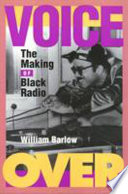 | David Van Leer - 1995 - 236 páginas
...explained: Language, for the individual consciousness, lies on the borderline between oneself and the other. The word in language is half someone else's. It becomes...populates it with his own intention, his own accent, when he appropriates the word, adapting it to his own semantic and expressive intention. Prior to this... | |
 | Amy Mandelker - 1995 - 228 páginas
.... language, for the individual consciousness, lies on the borderline between oneself and the other. The word in language is half someone else's. It becomes...populates it with his own intention, his own accent, when he appropriates the word, adapting it to his own semantic and expressive intention. Prior to this... | |
 | Anthony D. King - 1996 - 300 páginas
...opinion, language, for the individual consciousness, lies on the borderline between oneself and the other. The word in language is half someone else's. It becomes...populates it with his own intention, his own accent, when he appropriates the word, adapting it to his own semantic and expressive intention. . . Language... | |
 | Edwina Taborsky - 1997 - 252 páginas
...The receiver's three nodes or sites of organization make a hybrid of this 'original' energy, and so, 'the word in language is half someone else's. It becomes...own intention, his own accent' (Bakhtin 1981:293). Each node is a frame of energy, understood as both energy and a particular organization of energy.... | |
 | Meili Steele - 1997 - 170 páginas
...heteroglossia" (295). Such a view of language redefines the isolated subject of phenomenology in social space: "The word in language is half someone else's. It becomes...populates it with his own intention, his own accent, when he appropriates the word, adapting it with his own accent, when he appropriates the word, adapting... | |
 | James L. Collins - 1998 - 268 páginas
...Bakhtin (1975/1981) makes the point that this process of unification is also how we learn language: The word in language is half someone else's. It becomes...populates it with his own intention, his own accent, when he appropriates the word adapting it to his own semantic and expressive intention. Prior to this... | |
 | Aleksandr Grigorʹevich Asmolov - 1998 - 142 páginas
...of Vygotsky 's contemporaries, MM Bakhtin (1985-1975), made about meaning in general. Bakhtin wrote: The word in language is half someone else's. It becomes...populates it with his own intention, his own accent, when he appropriates the word, adapting it to his own semantic and expressive intention. Prior to this... | |
 | Michael Bell, Michael E Gardiner - 1998 - 252 páginas
...86; original emphasis). And furthermore, any word we voice has already been voiced by someone else: The word in language is half someone else's. It becomes...populates it with his own intention, his own accent... adapting it to his own semantic and expressive intention. Prior to this moment of appropriation the... | |
 | William Barlow - 1999 - 368 páginas
...Voices Language, for individual consciousness, lies on the borderline between oneself and the other. The word in language is half someone else's. It becomes...own" only when the speaker populates it with his own intentions, his own accent, when he appropriates the word, adapting it to his own semantic and expressive... | |
 | Willi Erzgräber - 1998 - 416 páginas
...Bemerkungen in MM Bachtins »Discourse in the Novel«: »The word in language is half someone eise's. It becomes »one's own« only when the Speaker populates it with his own intention, his own accent, when he appropriates the word, adapting it to his own semantic and expressive intention«. In: The... | |
| |